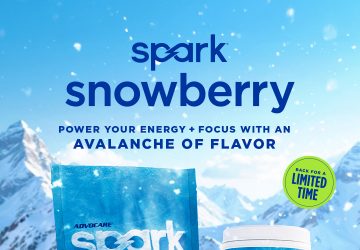Water is important for life and for optimal physical performance. Water makes up about 60 percent of your body mass. Your dietary intakes of food and water allow you to be in a state of “euhydration” or normal water balance. As you go through the day with work, recreation, and/or exercise, water and electrolytes are lost and must be replaced.
Minerals dissolved in water are called “electrolytes” and are important for cell functions. The process of losing body water is called “dehydration” and physical and mental performances can suffer. The term “hypohydration” is the deficit of body water caused by acute or chronic dehydration and can negatively affect performance. With any type of exercise, the demands placed on your body to maintain water and electrolyte balances can only be met by proper amounts of fluid and electrolyte intakes. Tweet This!
How do I determine my level of dehydration?
Understanding the level of dehydration you have experienced with a sport, exercise session or activity takes a little bit of effort but it helps you know first, if your fluid intake behavior was successful or not. Thirst, is an indicator for one to see fluids and drink to relieve the sensation, but should not be used as the sole marker of one’s hydration status alone. The levels of hypohydration caused by dehydration can be estimated by the amount of body mass (weight) lost in a workout. Tweet This!
-
- A well-hydrated individual shows a one percent or less loss of body mass and is thought to be acceptable.
- Minimal dehydration ranges from a loss of one – three percent of body mass.
- Significant dehydration is observed when an individual loses three to five percent of body mass.
- Finally, serious dehydration is noted with a loss of five percent or more of one’s body mass.
This means that having fluids available before, during and after exercise sessions is important, in addition to weighing in before and after exercise to check yourself and educate your water behavior. Various sporting events, workouts, etc. that take place in different environments can create changes in the demands on hydration. Tweet This!
For example, all 5K races may not produce the same hydration needs if the temperature and humidity are different. Working out in a hot garage weight room may challenge your hydration status differently than in an air-conditioned facility. Wearing too many layers of clothing to protect one from the cold may create a hot micro environment that challenges your hydration status despite being in cold snowy trail run in the winter.
Effects of Dehydration on Performance.
The level of hydration needed to negatively impact performance may vary between aerobic and anaerobic exercises or sports. Tweet This! However, this difference is, most of the time, explained by differences in the intensity, duration and environmental factors (heat, humidity, clothing layers etc). As noted before, poor choices in clothing and equipment (padding, helmets) can create environments that can cause dehydration due to sweating even in a cold environment. (e.g., ice hockey, football, cross-country skiing, etc). It has been documented in most every aspect of sport and recreational activities that dehydration levels from small to large can have negative effects on performances.
Even small amounts of dehydration can affect both types of sports or exercises. Tweet This! For example, as little as two percent loss of body mass reflects dehydration that can dramatically reduce one’s time in 5K and 10K performances or even your upper body strength in a weight training workout.
Still, proper fluid intake behaviors can help prevent this and optimize performances, safety and health.
General Hydration Guidelines.
Some general guidelines can be given for fluid and electrolyte intakes and can be found in a brochure free to the public by the American College of Sports Medicine here. It is important to make sure you are hydrated the night before and then on the day of exercise – before, during and after the exercise or recreational time frame.
Caution Not to Overhydrate.
Different than in the past, the importance of replacing water and electrolytes has become part of an active lifestyle with all shapes and sizes of water bottles being used today. However, one must also be knowledgeable that too much water in excess can also be dangerous and even result in death in extreme circumstances.
Overhydrating or drinking too much water can cause a condition called “hypervolemia” which is a medical condition in which too much fluid in the blood from excessive drinking can dilute the electrolytes. Many times this medical emergency is observed in long distance races where the fear of dehydration and need to drink overshoots the individual’s water loss. Drinking too much water can also result in “hyponatremia” which is a low blood sodium content that can lead to a host of different problems as well. Ultimately, mistakes in managing your hydration levels can lead to less than optimal performances. Tweet This!
Exercising and having fun in gaining improved fitness or enjoying recreational activities is an important part of an active lifestyle. Understanding how to properly hydrate yourself and your family is vital for safe, and effective exercise performances. Tweet This! Whether in a weight room or gym, out on a beautiful golf course or a challenging trail mountain biking, making sure your body is properly hydrated is part of optimizing your fitness experience.
References
Kraemer, W.J. Fleck, S.J. and Deschenes, M.R. Chapter 10: Fluid and Electrolyte Challenges IN: Exercise In: Exercise Physiology: Integrating Theory and Applications, 2nd Edition, Walters Kluwer/Lippincott, Williams & Wilkins, Philadelphia, PA, 2016.
McDermott, B.P., Anderson, SA, Armstrong, L.E. et al. National Athletic Trainers’ Association Position Statement: Fluid Replacement for the Physically Active, Journal of Athletic Training; 52(9):877–895, 2017.

William Kraemer Ph.D., FACSM, FNSCA, FISSN, FACN
- More than 450 peer-reviewed scientific manuscripts related to sports medicine, exercise, sports science and sports nutrition
- Over 100 book chapters, author of ten books
“I am impressed with the quality of the AdvoCare products and ingredients along with the effort taken in their formulation.”




